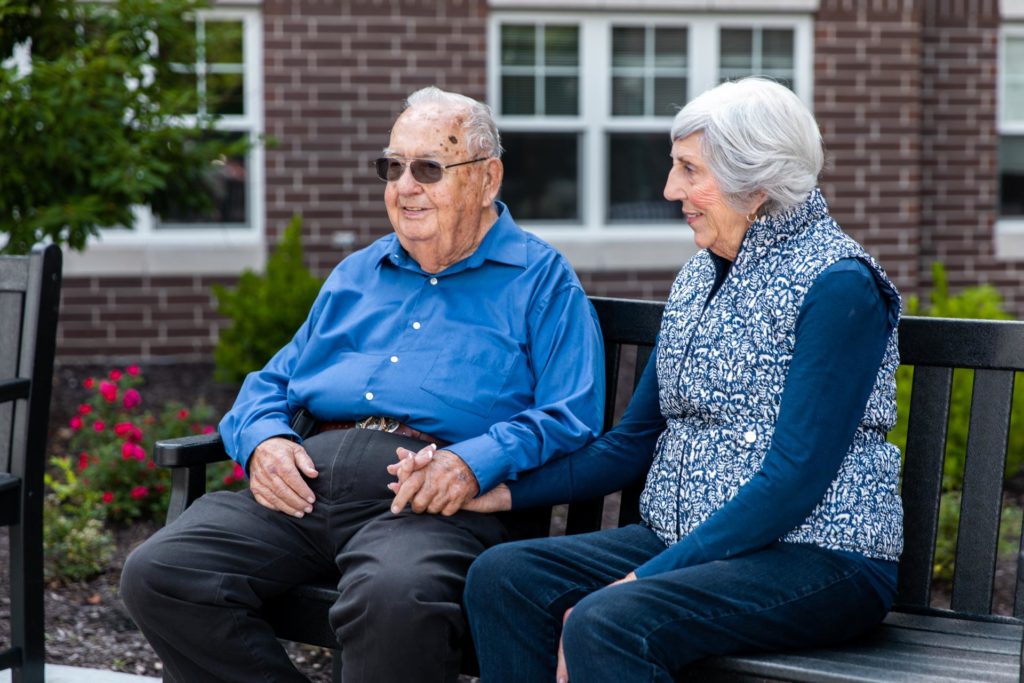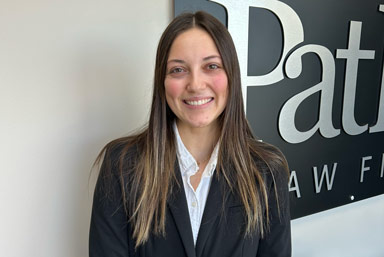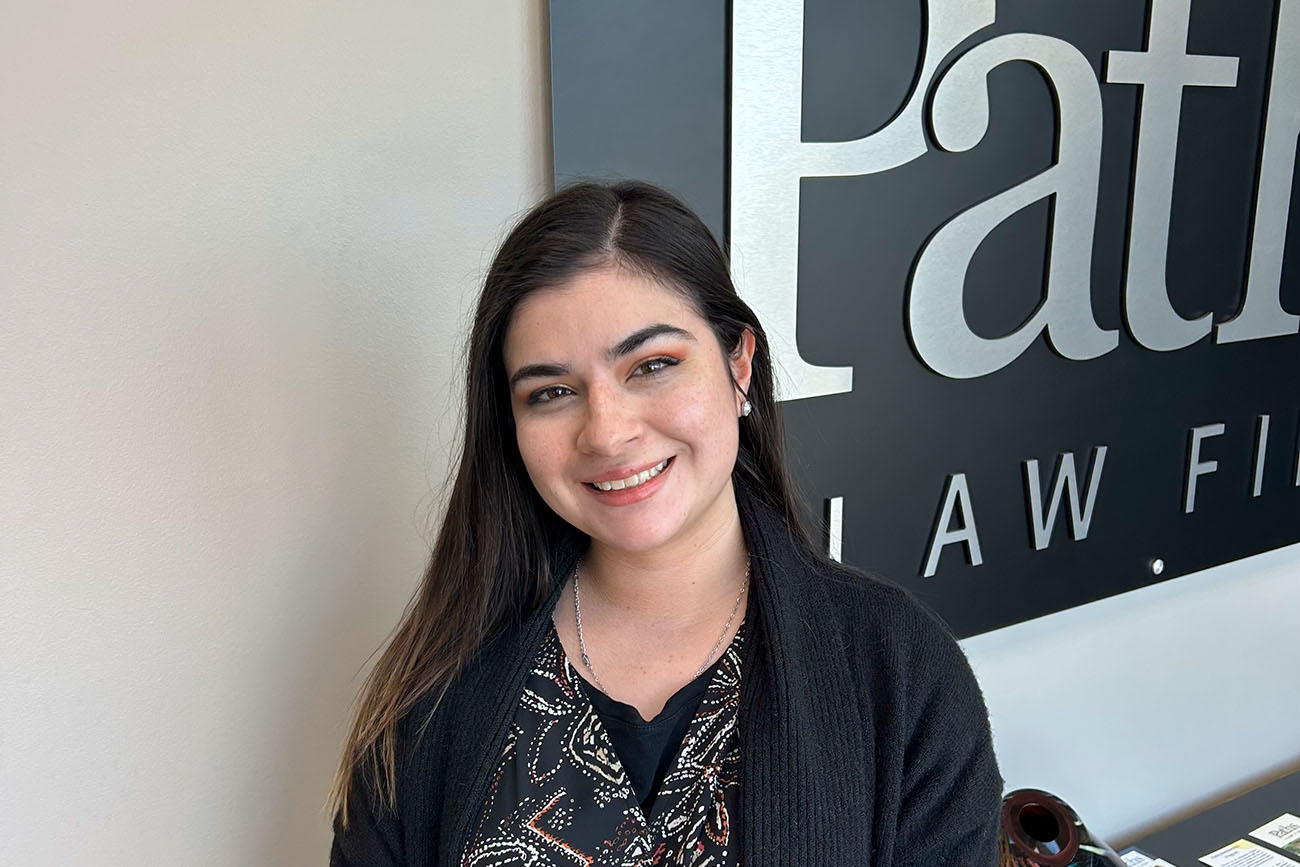How to talk to elderly parents and other aging loved ones | Kansas City
The holidays can be a time of reunion and joy as family gathers for good food and great company. But for some of us, the holiday season also serves another purpose: to check in with elderly parents and other aging loved ones that we don’t see on a routine basis.
Especially if you’ve gone a while without seeing your elderly parents and other aging loved ones, it may feel jarring to notice new signs of aging around the holidays. But is there anything you can do to help? What resources do they need? How do you even begin the conversation?
Paths Law Firm is staffed by one of Kansas City’s finest elder law attorneys, as well as a team of elder care professionals who are ready to help you navigate the often confusing world of elder care. Every day, we guide conversations with adult children and their aging loved ones to help them assess their challenges, their needs, and ultimately, their care.
Read on to learn from Missouri’s elder care expertsabout how to talk to elderly parents and aging loved ones in Kansas City.
*This blog is for educational purposes only and should not be considered legal advice. The use of the Paths Law Firm website does not constitute a client-lawyer relationship.
What to do before talking to elderly parents & aging loved ones

First and foremost, before talking to your elderly parents about their short- and long-term care plan, it’s important to assess their challenges.
Did mom leave the oven on? Did Uncle Steve experience a rough fall? Before deciding how to talk to your elderly parents or aging loved ones, try to understand whether the care they need is cognitive, physical, or both.
This may take keen observation on your part. Sometimes, when elderly men or women begin to struggle with everyday tasks or are experiencing other common problems associated with aging, they aren’t truthful about it—or they at least downplay the severity of their issues. Only by seeingand observing will you be able to truly understand what they’re going through.
?Note: ideally, you’ll want to talk to your parent or loved one before they face any (more) serious health issues. That’s because it’s much more difficult to think about long-term solutions and planned care in the middle of a crisis.
Once you’ve determined their current mental and physical state—whether that’s chatting with your Aunt Kathy or getting a medical release from their doctor(s)—you’ll feel much more informed and equipped to discuss the things they need.
Before diving in, however, there’s one more step to take: discuss the situation with other close family members. This is especially true if you anticipate your parent’s care being more involved, which could require more of a time or financial commitment.
Not sure what to look for? You can also use our handy Caring for Aging Parents Checklist.
In the case of a parent or loved one with cognitive issues, be sure to determine who will be the main point(s) of contact between your parent’s care advisors, attorneys, and doctors. This may depend on who is next of kin, but it also may be more nuanced—who has the time to handle these affairs? Who has the capacity and the know-how? Do you have the ability to discuss difficult topics with your other family members?
Sometimes, adult children may feel they have no choice but to handle these issues for their elderly parents. If you want to know more about this difficult but important decision, be sure to stay tuned for our next article: Can I refuse to care for an elderly parent? A Kansas City Elder Attorney weighs in.
What do I need to talk to aging loved ones about?

The topics of discussion with your loved one will largely center around his or her unique situation. Here are some of the most popular topics we hear about at Paths Elder Law.
Health & Wellness
Taking care of the physical needs of your loved one should come first. Whether they’re experiencing an orthopedic issue, have an illness or disease, or simply cannot get around like they used to, they deserve to know you care.
In some instances, it might be time to discuss a move. There are a variety of types of care facilities, each with their own specialties and levels of patient involvement. Depending on the needs—and budget—of your loved one, you may find that one type of facility will work better than another. If they wish for you to be involved in this process, or they can’t otherwise navigate it alone, it may help for you to start researching the best facilities near you. This may include independent living options, assisted living, or a nursing home.
The idea of undergoing even a temporary move can fuel a lot of stress, for both you and your elderly parent or loved one. Approach this topic delicately and gauge their reactions to understand how best to proceed.
Keep in mind that the decision to move, even if not to assisted living of a nursing home, permanently or temporarily, may depend on his or her assets, income, and insurance coverage. Maybe the right option isn’t the nursing home, but they can afford a part-time, in-home assistant to help with cooking, cleaning, or bathing.
? Your loved one will surely have their own opinions about their care—we’ll discuss that more in-depth below.
Memory Care
In some cases, you may notice that your elderly parent or aging loved one is having trouble with remembering. Depending on the level of severity, you may want to consider memory care as an option. Memory care is provided primarily in assisted living and nursing homes where elderly and aging patients exercise physically and mentally to stay as sharp as they can for as long as they can.
For example, if mom keeps forgetting doctor’s appointments but is otherwise capable of living independently, there are small things you can do to help ease your concerns. Leaving voicemail, text, or even sticky-note reminders for mom can remind her of upcoming appointments. Additionally, being added as a trusted contact on medical release forms – or even attending appointments with her – can keep you in the loop.
Legacy
Beyond their immediate care and well-being, you and your loved ones may also be concerned about the legacy they’re leaving behind. It’s understandably difficult to be objective when thinking about the possibility that your loved one will someday be gone. However, hopefully, you and your family can find some comfort in preserving their legacy.
It can be confusing to figure out what will happen to your loved one’s assets in the event of their death. Sometimes, he or she will already have an action plan in place (such as a Will or Trust). Oftentimes, though, elderly parents or loved ones will not have started any sort of documentation process to help assemble and/or protect their assets.
This can lead to assets going into probateor even unintended directions. Probate is a long, tedious, and sometimes unnecessary process to put your family through. The best way to avoid this is to head to an elder law attorney in Kansas City for guidance on asset protection.
Happiness
Is your loved one happy? It can be easy to forget through these discussions that your loved one is their own person: a productive citizen with thoughts and feelings. Remind them that they’re loved, valued, and appreciated, regardless of any decisions made.
How to talk to elderly parents or aging loved ones

Now that you’ve determined what to talk to your parents or loved ones about, it’s even more important to determine how to talk to them.
Pick a Time & Place.
Choosing a comfortable, quiet environment may help your loved one focus to help better absorb information. Where do they feel at ease?It will also be helpful to reduce distractions such as TV or radio.
Choosing the right time of day and day of the week can also influence your discussion. What time of the day do they feel most alert?Whether it’s on a morning walk during the week or after lunch on a weekend, knowing your loved one’s habits can make for a much more productive meeting.
Having worked with thousands of families across Missouri over the years, the team at Paths Law Firm can say with experience that even the place you sit during your discussion may influence the tone of the conversation. Actually, being face-to-face may help them read your facial expressions (and your lips, if necessary). It will also help you convey you’re serious about and committed to their care.
Decide who will attend.
You may decide to coordinate with other family members to help approach your aging loved one. Be sure that any others involved are also just as serious about and caring for this individual. That said, be careful not to invite too many cooks into the kitchen—you don’t want anyone to feel overwhelmed or bombarded.
Listen.
Before speaking with your aging loved one, be sure to listen. Ask questions about how they’re feeling, what they’re experiencing, and what they think about their journey to getting the help they need. Listening to these concerns may be difficult, but it’s necessary to help you understand and connect with them on a very human level.
Ask, don’t tell.
Especially if you are the child of an elderly parent, giving advice to someone who has helped you throughout your life may feel like a foreign concept. It may even feel wrong. But this is totally normal—and it can be a difficult adjustment for your parents, too. Understand that at the end of the day, all you may be able to accomplish is encouraging the decision you think is best, not forcing them to do something they don’t want to do.
Dealing with negative elderly parents →
Take one step at a time.
Talking to your elderly parent or aging loved one can easily become overwhelming, especially if you have multiple topics to cover. Take your time and address their immediate needs first. Don’t be afraid to take a break. Go get lunch or ice cream and enjoy your time with them!
How NOT to talk to your elderly parents or other aging loved ones
Sometimes it can seem like your parent or aging loved one has a hard time focusing. Other times, they can seem “slow” or forgetful.
NextAvenue offers advice on how to amend your concerns or challenges with your loved one into more productive and less hurtful conversations.You can also consult with other family members, perhaps their sibling(s) or even parents in some cases! They will know him or her better than anyone and can help advise you on how to approach the conversation in a respectful and compassionate way.
Learn more about elder care in Kansas City from the experts at Paths Elder Law
All of these tips will help you ease the understandable awkwardness of the conversation and show that you care about your loved one, their care, and their legacy.
Need more help with navigating the confusing world of end-of-life care and assisting your elderly parents and other aging loved ones through it all?
Reach out to Paths Law Firm today to schedule a consultation, and you’ll be one step closer to the peace of mind you’re searching for.



































